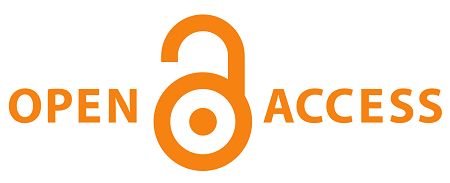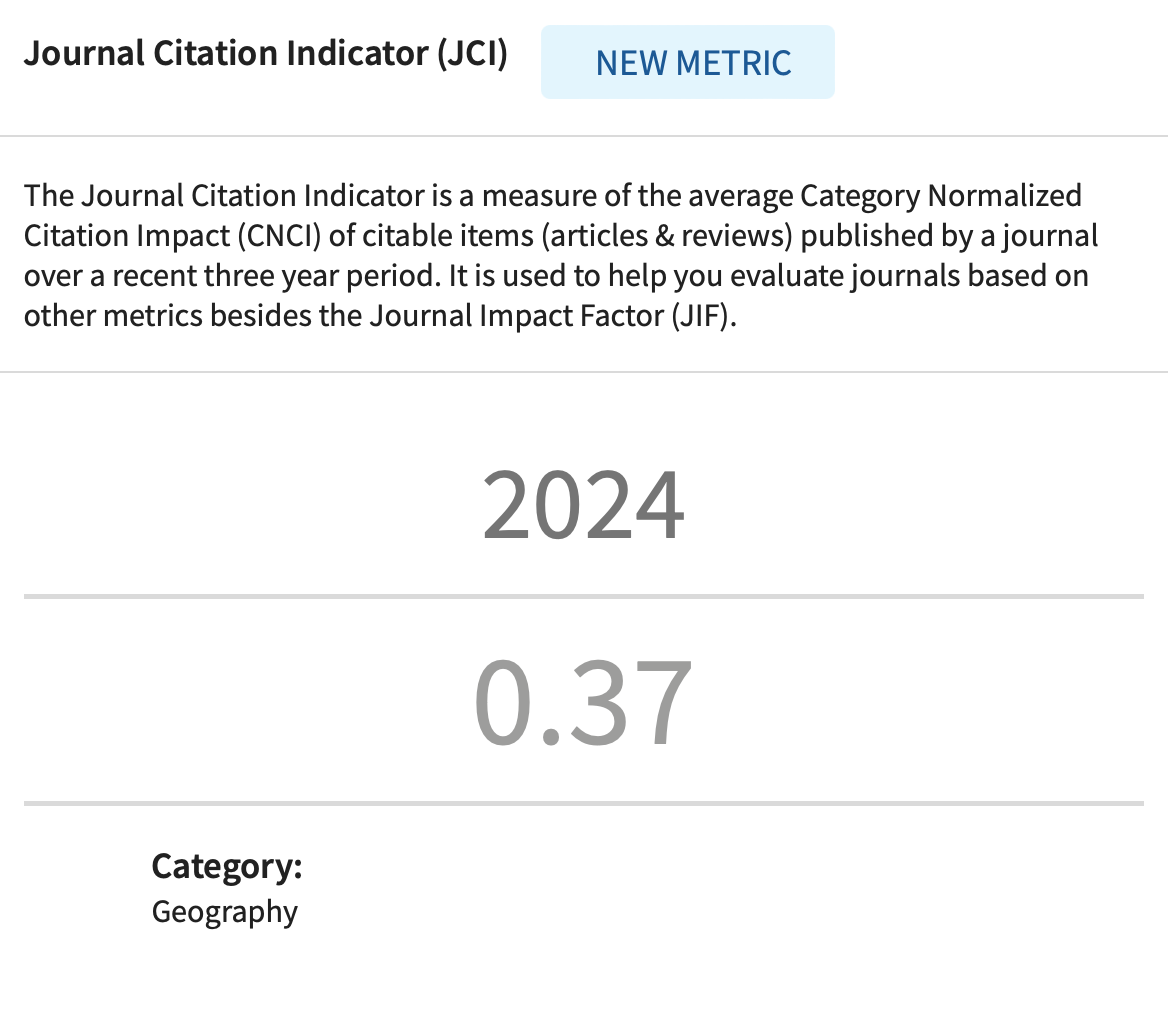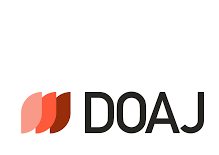RESILIENCE OF TOURISM EMPLOYEES TO CHANGES CAUSED BY COVID-19 PANDEMIC
DOI:
https://doi.org/10.2298/IJGI2102181BKeywords:
employee resilience, tourism employees, COVID-19, SerbiaAbstract
Although tourism is an industry that has become resistant to various problems over time, the consequences left by COVID-19 pandemic have taken on global proportions. Serbia, like many other countries, has suffered a great damage in tourism industry since the beginning of the pandemic. However, research on the connection between COVID-19 and tourism in Serbia is in its infancy. As no research has been conducted in Serbia on the resilience of employees in different sectors of tourism, the main goal of this study is to determine the extent to which employees in tourism sectors in Serbia are resilient to changes caused by COVID-19 pandemic. Also, the study aimed to determine the intentions in the behavior of employees after the pandemic. Respondents who participated in the research are employed in various sectors of tourism (travel agencies, travel organizations, tourist guides, employees in the hospitality industry, and academic sector). To achieve goals, the survey was conducted among 264 participants in November and December 2020. A scale of 50 statements was applied, and by applying the Exploratory Factor Analysis (EFA), three resilience factors (competence, communication, and self-efficiency) were singled out. The results of the research show that employees in tourism are largely resilient to the changes, and the strongest factor that stands out among the respondents is competence. In addition, study proved that all the factors of the resilience are expected to have a positive effect on the behavior of employees in the post-crisis period.
Article metrics
References
Albu, O. B., & Wehmeier, S. (2014). Organizational Transparency and Sense-Making: The Case of Northern Rock. Journal of Public Relations Research, 26(2), 117–133. https://doi.org/10.1080/1062726X.2013.795869
Avery, E., & Park, S. (2016). Effects of crisis efficacy on intentions to follow directives during crisis. Journal of Public Relations Research, 28(2), 72–86. https://doi.org/10.1080/1062726X.2016.1165681
Bandura, A., & Cervone, D. (1986). Differential engagement of self-reactive influences in cognitive motivation. Organizational Behavior and Human Decision Processes, 38(1), 92–113. https://doi.org/10.1016/0749-5978(86)90028-2
Chang, C.-L., McAleer, M., & Ramos, V. (2020). A Charter for Sustainable Tourism After COVID-19. Sustainability, 12(9), 3671. https://doi.org/10.3390/su12093671
Demirović Bajrami, D., Terzić, A., Petrović, M. D., Radovanović, M., Tretiakova, T. N., & Hadoud, A. (2021). Will we have the same employees in hospitality after all? The impact of COVID-19 on employees’ work attitudes and turnover intentions. International Journal of Hospitality Management, 94, 102754. https://doi.org/10.1016/j.ijhm.2020.102754
Frandsen, F., & Johansen, W. (2016). Organizational crisis communication: A multivocal approach. London, UK: Sage. https://doi.org/10.1515/commun-2018-2010
Ghitulescu, B. E. (2012). Making Change Happen: The Impact of Work Context on Adaptive and Proactive Behaviors. The Journal of Applied Behavioral Science, 49(2), 206–245. https://doi.org/10.1177/0021886312469254
Grant, A. M., & Ashford, S. J. (2008). The dynamics of proactivity at work. Research in Organizational Behavior, 28, 3–34. https://doi.org/10.1016/j.riob.2008.04.002
Griffin, M. A., Neal, A., & Parker, S. K. (2007). A New Model of Work Role Performance: Positive Behavior in Uncertain and Interdependent Contexts. Academy of management journal, 50(2), 327–347. https://doi.org/10.5465/AMJ.2007.24634438
Griffin, M. A., Parker, S. K., & Mason, C. M. (2010). Leader Vision and the Development of Adaptive and Proactive Performance: A Longitudinal Study. Journal of Applied Psychology, 95(1), 174–182. https://doi.org/10.1037/a0017263
Kim, Y. (2020). Organizational resilience and employee work-role performance after a crisis situation: exploring the effects of organizational resilience on internal crisis communication. Journal of Public Relations Research, 32(1–2), 47–75. https://doi.org/10.1080/1062726X.2020.1765368
Kim, J.-N., & Rhee, Y. (2012). Strategic Thinking about Employee Communication Behavior (ECB) in Public Relations: Testing the Models of Megaphoning and Scouting Effects in Korea. Journal of Public Relations Research, 23(3), 243–268. https://doi.org/10.1080/1062726X.2011.582204
Kim, Y. (2018). Enhancing employee communication behaviors for sensemaking and sensegiving in crisis situations: Strategic management approach for effective internal crisis communication. Journal of Communication Management, 22(4), 451–475. https://doi.org/10.1108/JCOM-03-2018-0025
Lee, A. V., Vargo, J., & Seville, E. (2013). Developing a Tool to Measure and Compare Organizations’ Resilience. Natural Hazards Review, 14(1), 29–41. https://doi.org/10.1061/(ASCE)NH.1527-6996.0000075
Leoni, R. (2012). Workplace Design, Complementarities among Work Practices, and the Formation of Key Competencies: Evidence from Italian Employees. Industrial and Labor Relations Review, 65(2), 316–349. https://doi.org/10.1177/001979391206500206
Lundberg, J., Törnqvist, E., & Nadjm–Tehrani, S. (2012). Resilience in sensemaking and control of emergency response. International Journal of Emergency Management, 8(2), 99–122. https://doi.org/10.1504/IJEM.2012.046009
Mao, Y., He, J., Morrison, A. M., & Andres Coca-Stefaniak, J. (2020). Effects of tourism CSR on employee psychological capital in the COVID-19 crisis: from the perspective of conservation of resources theory. Current Issues in Tourism, Advance online publication. https://doi.org/10.1080/13683500.2020.1770706
Marques-Quinteiro, P., & Curral, L. A. (2012). Goal Orientation and Work Role Performance: Predicting Adaptive and Proactive Work Role Performance Through Self-Leadership Strategies. The Journal of Psychology, 146(6), 559–577. https://doi.org/10.1080/00223980.2012.656157
Masten, A. S., Cutuli, J. J., Herbers, J. E., & Reed, M.-G. J. (2012). Resilience in Development. In S. J. Lopez & C. R. Snyder (Eds.), The Oxford Handbook of Positive Psychology, (2nd ed., pp. 117–131). Oxford, UK: Oxford University Press. https://doi.org/10.1093/oxfordhb/9780195187243.013.0012
Mazzei, A., Kim, J.-N., & Dell'Oro, C. (2012). Strategic Value of Employee Relationships and Communicative Actions: Overcoming Corporate Crisis with Quality Internal Communication. International Journal of Strategic Communication, 6(1), 31–44. https://doi.org/10.1080/1553118X.2011.634869
Men, L. R., & Stacks, D. W. (2013). The impact of leadership style and employee empowerment on perceived organizational reputation. Journal of Communication Management, 17(2), 171–192. https://doi.org/10.1108/13632541311318765
Meneghel, I., Martínez, I. M., & Salanova, M. (2016). Job-related antecedents of team resilience and improved team performance. Personnel Review, 45(3), 505–522. https://doi.org/10.1108/PR-04-2014-0094
Novelli, M., Burgess, L. G., Jones, A., & Ritchie, B. W. (2018). ‘No Ebola… still doomed’ – The Ebola-induced tourism crisis. Annals of Tourism Research, 70, 76–87. https://doi.org/10.1016/j.annals.2018.03.006
Nyaupane, G. P., Prayag, G., Godwyll, J., & White, D. (2020). Toward a resilient organization: analysis of employee skills and organization adaptive traits. Journal of Sustainable Tourism, 29(4), 658–677. https://doi.org/10.1080/09669582.2020.1822368
Orchiston, C., Prayag, G., & Brown, C. (2016). Organizational resilience in the tourism sector. Annals of Tourism Research, 56, 145–148. https://doi.org/10.1016/j.annals.2015.11.002
Powley, E. H. (2009). Reclaiming resilience and safety: Resilience activation in the critical period of crisis. Human Relations, 62(9), 1289–1326. https://doi.org/10.1177/0018726709334881
Prayag, G. (2018). Symbiotic relationship or not? Understanding resilience and crisis management in tourism. Tourism Management Perspectives, 25, 133–135. https://doi.org/10.1016/j.tmp.2017.11.012
Prayag, G., Spector, S., Orchiston, C., & Chowdhury, M. (2020). Psychological resilience, organizational resilience and life satisfaction in tourism firms: Insights from the Canterbury earthquakes. Current Issues in Tourism, 23(10), 1216–1233. https://doi.org/10.1080/13683500.2019.1607832
Rodríguez-Sánchez, A., Guinot, J., Chiva, R., & López-Cabrales, Á. (2019). How to emerge stronger: Antecedents and consequences of organizational resilience. Journal of Management & Organization, 1-18. http://doi.org/10.1017/jmo.2019.5
Sigala, M. (2020). Tourism and COVID-19: Impacts and implications for advancing and resetting industry and research. Journal of Business Research, 117, 312–321 https://doi.org/10.1016/j.jbusres.2020.06.015
Smith, R. A., & Henderson, J. C. (2008). Integrated beach resorts, informal tourism commerce and the 2004 tsunami: Laguna Phuket in Thailand. International Journal of Tourism Research, 10(3), 271–282. https://doi.org/10.1002/jtr.659
Spreitzer, G. M. (1995). Psychological Empowerment in the Workplace: Dimensions, Measurement, and Validation. Academy of Management Journal, 38(5), 1442–1465. https://doi.org/10.5465/256865
Strauss, K., Griffin, M. A., & Rafferty, A. E. (2009). Proactivity Directed Toward the Team and Organization: The Role of Leadership, Commitment and Role‐breadth Self‐efficacy. British Journal of Management, 20(3), 279–291. https://doi.org/10.1111/j.1467-8551.2008.00590.x
Strauss, K., Niven, K., McClelland, C. R., & Cheung, B. K. T. (2015). Hope and Optimism in the Face of Change: Contributions to Tasks Adaptivity. Journal of Business and Psychology, 30(4), 733–745. https://doi.org/10.1007/s10869-014-9393-2
Strickland-Munro, J. K., Allison, H. E., & Moore, S. A. (2010). Using resilience concepts to investigate the impacts of protected area tourism on communities. Annals of Tourism Research, 37(2), 499–519. https://doi.org/10.1016/j.annals.2009.11.001
Sutcliffe, K., M., & Vogus, T. J. (2003). Organizing For Resilience. In K. S. Cameron., J. E. Dutton., & R. E. Quinn (Eds.), Positive Organizational Scholarship, Foundation of a New Discipline (pp. 94–110). San Francisco, CA: Berrett-Koehler Publisher.
Tabachnick, B. G., & Fidell, L. S. (2007). Using Multivariate Statistics (5th ed.). Boston, MA: Allyn & Bacon.
UNWTO. (2021). UNWTO World Tourism Barometer and Statistical Annex, May 2021. UNWTO World Tourism Barometer (English version), 19(3). Retrieved from https://www.e-unwto.org/toc/wtobarometereng/19/3
Van Der Vegt, G. S., Essens, P., Wahlström, M., & George, G. (2015). Managing risk and resilience. Academy of Management Journal, 58(4), 971–980 https://dx.doi.org/10.5465/amj.2015.4004
Vučković, J., & Tsitsivas, V. (2020). Moguće posledice pandemije virusa COVID-19 na duševno zdravlje zaposlenih u turističkim agencijama u Srbiji [Possible consequences of the COVID-19 pandemic on the mental health of employees in travel agencies in Serbia]. Turističko poslovanje, (25–26), 63–74. http://doi.org/10.5937/turpos0-29998
Weick, K. E. (1995). Sensemaking in Organizations. Thousand Oaks, CA: Sage Publications.
World Health Organization. (2020). Virtual press conference on COVID-19–11 March 2020. Retrieved from https://www.who.int/docs/default-source/coronaviruse/transcripts/who-audio-emergencies-coronavirus-press-conference-full-and-final-11mar2020.pdf?sfvrsn=cb432bb3_2
Wruck, K. H., & Jensen, M. C. (1994). Science, specific knowledge, and total quality management. Journal of Accounting and Economics, 18(3), 247–287. https://doi.org/10.1016/0165-4101(94)90023-X
Downloads
Published
How to Cite
Issue
Section
License
Copyright (c) 2021 Journal of the Geographical Institute “Jovan Cvijić” SASA

This work is licensed under a Creative Commons Attribution-NonCommercial-NoDerivatives 4.0 International License.











